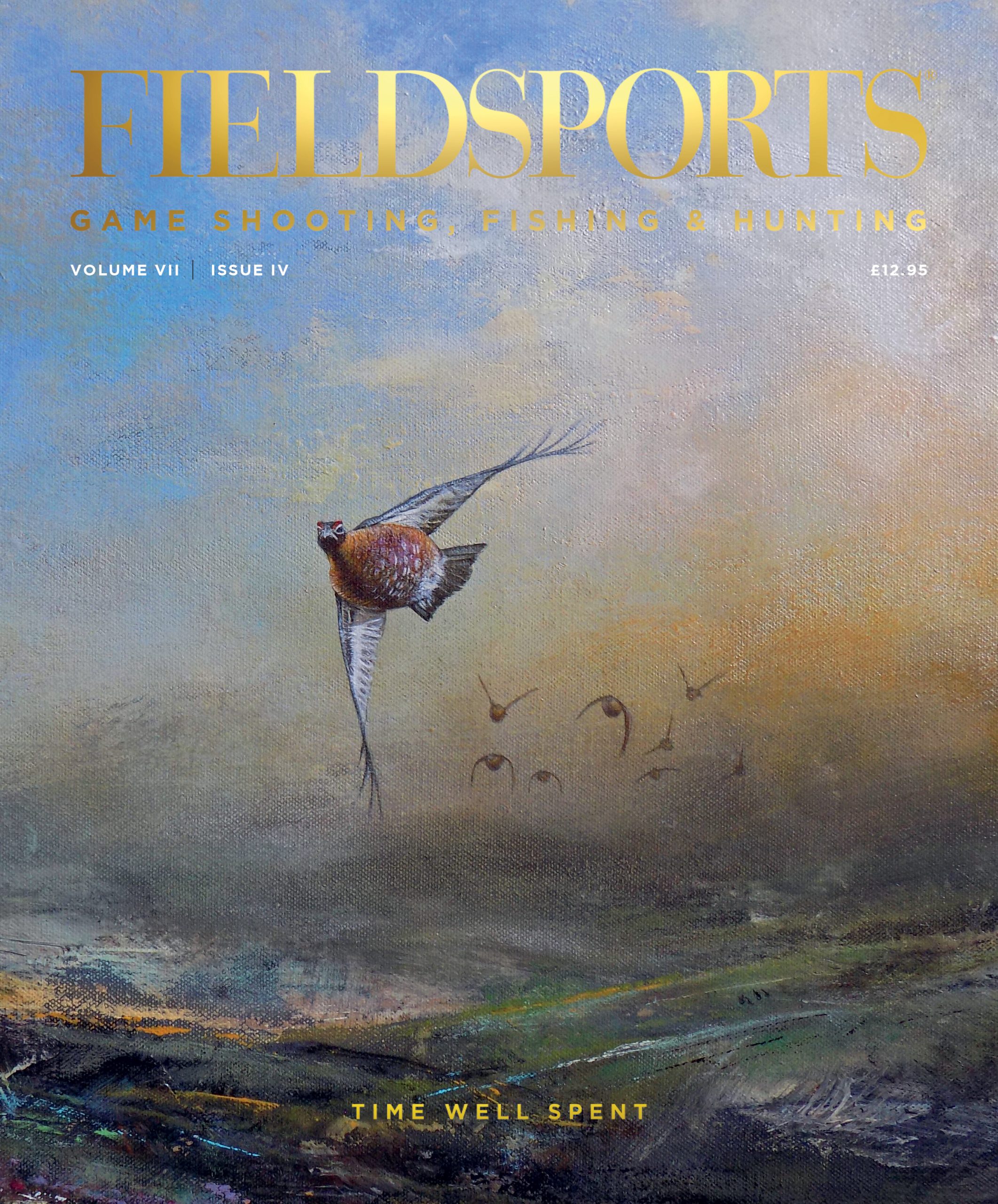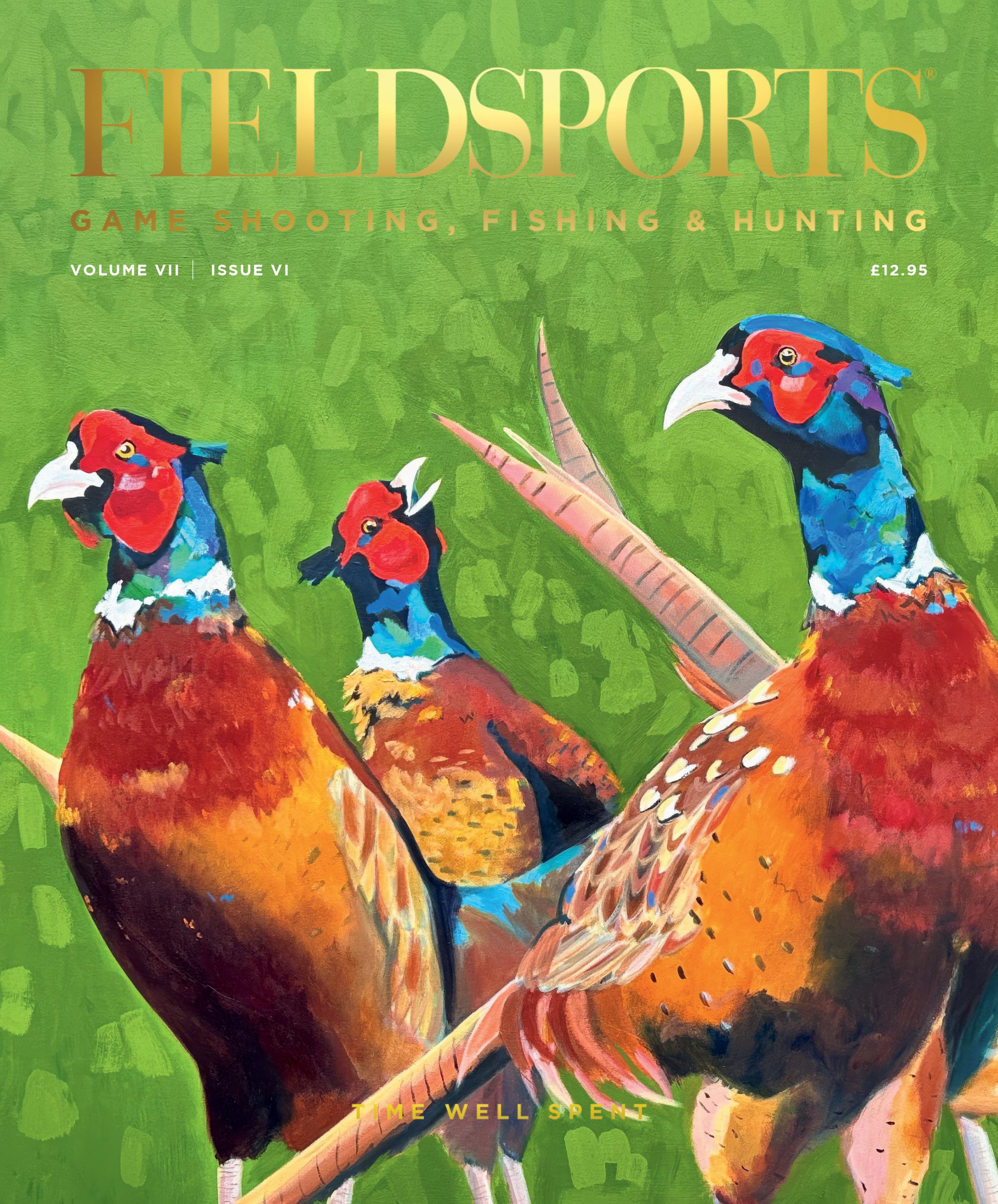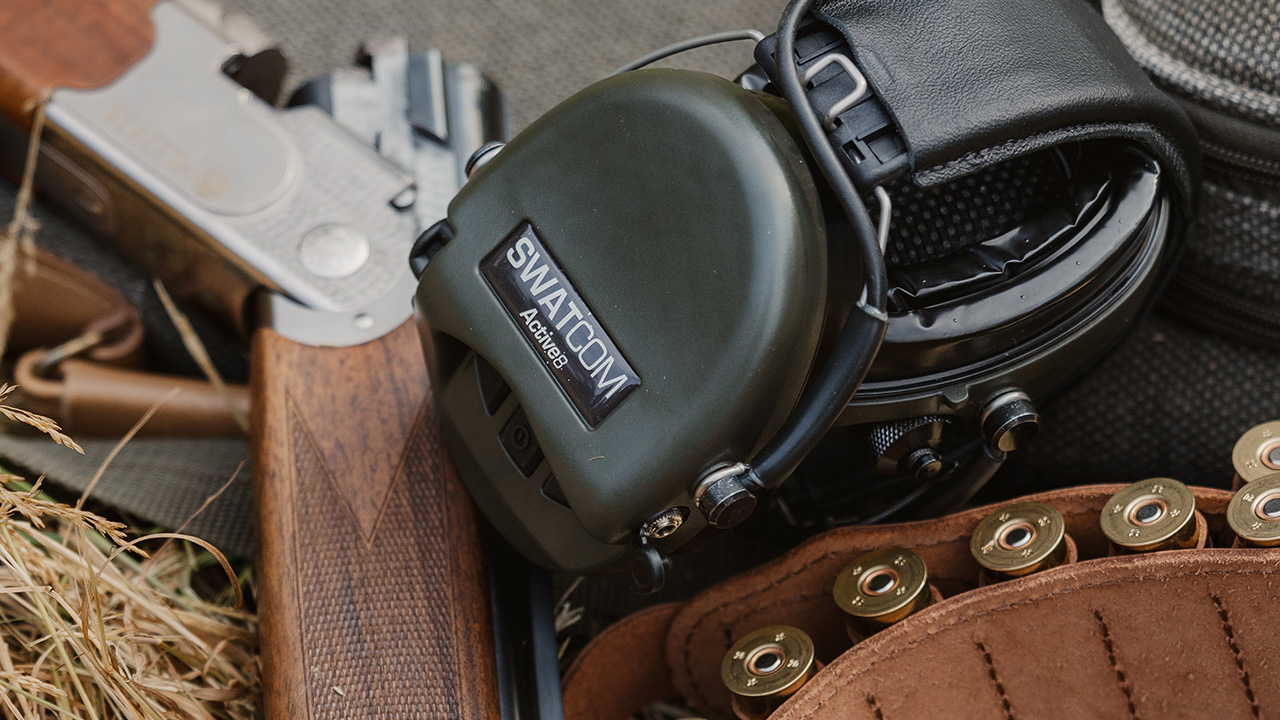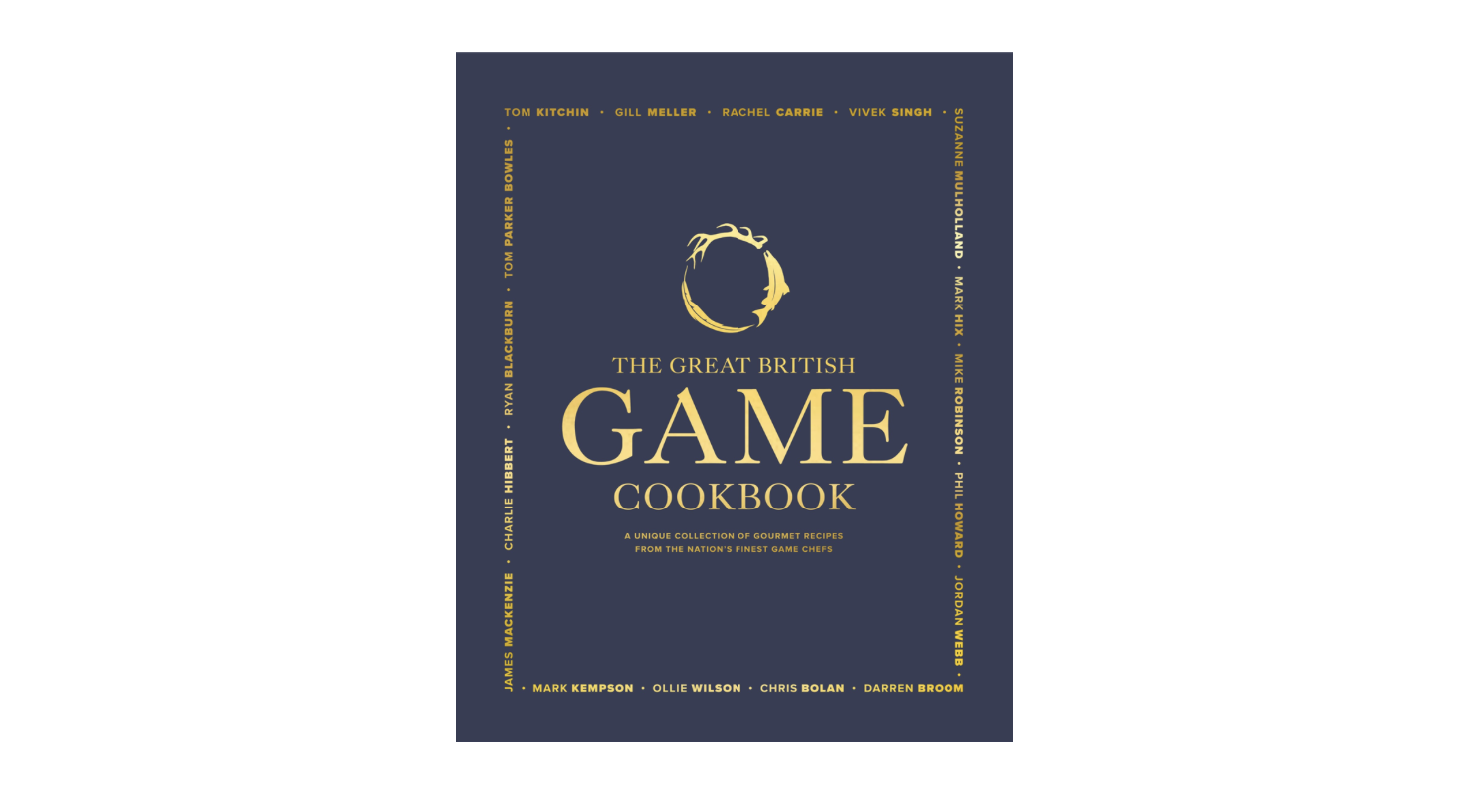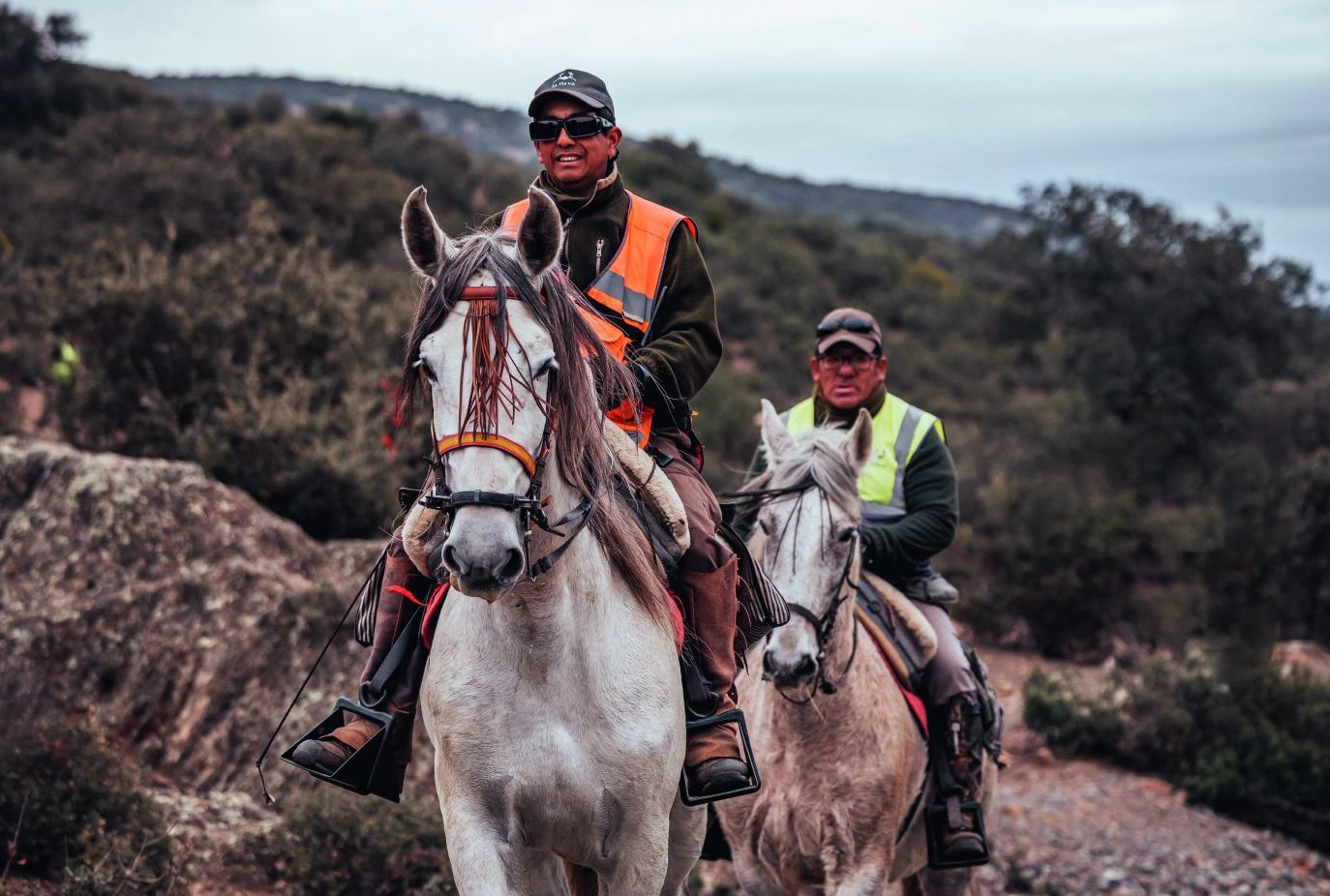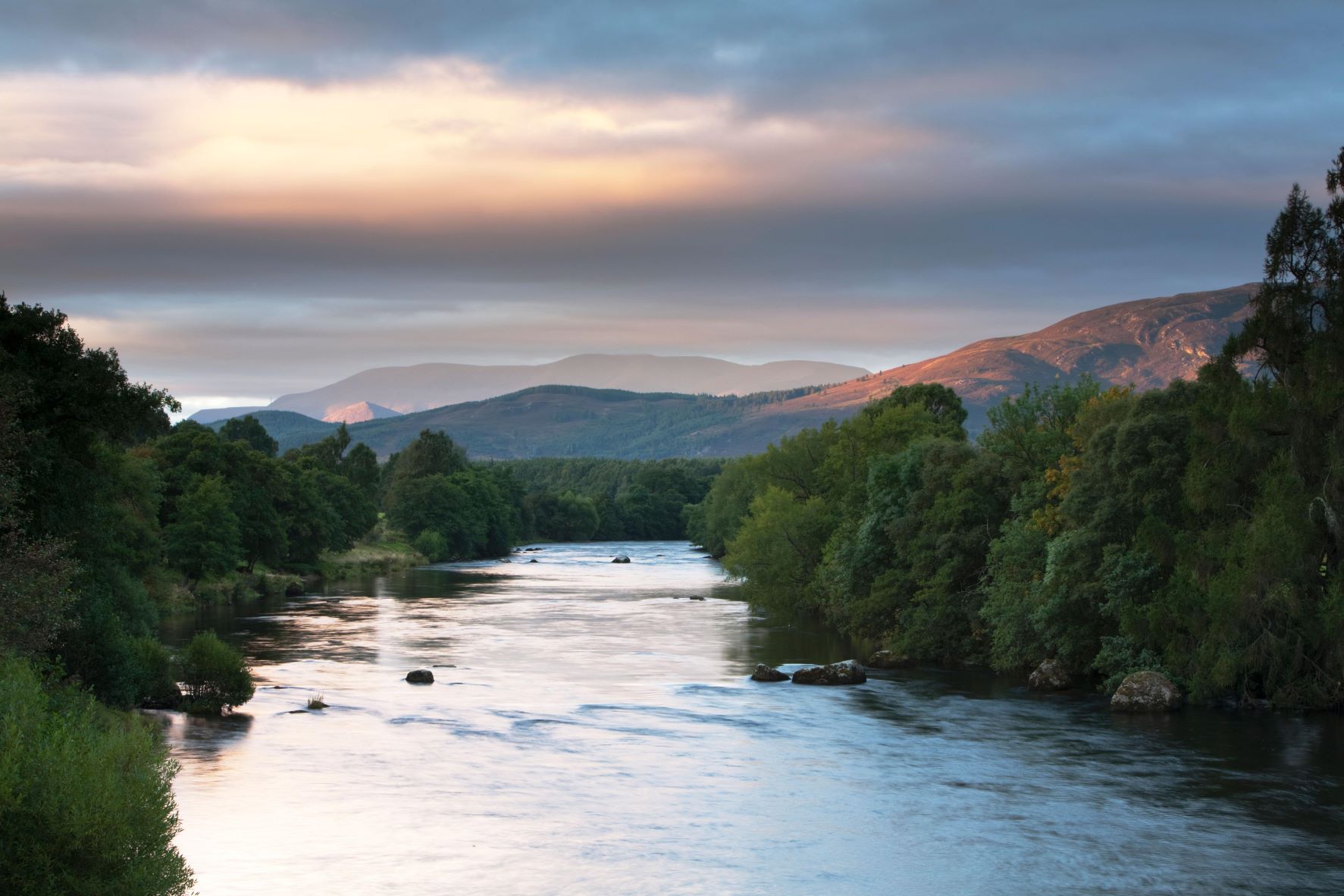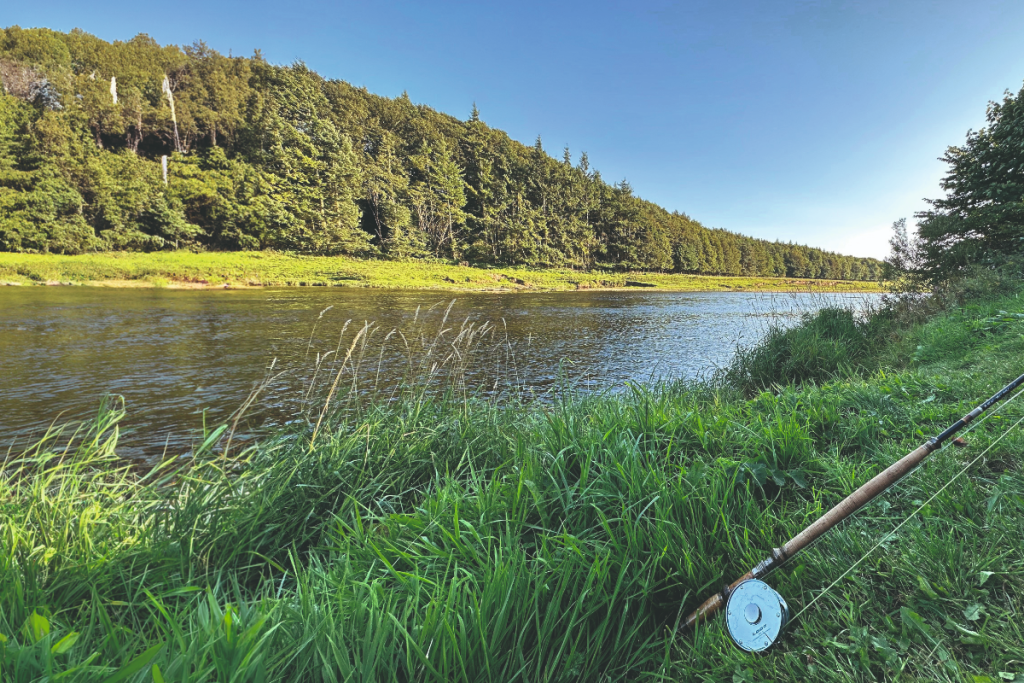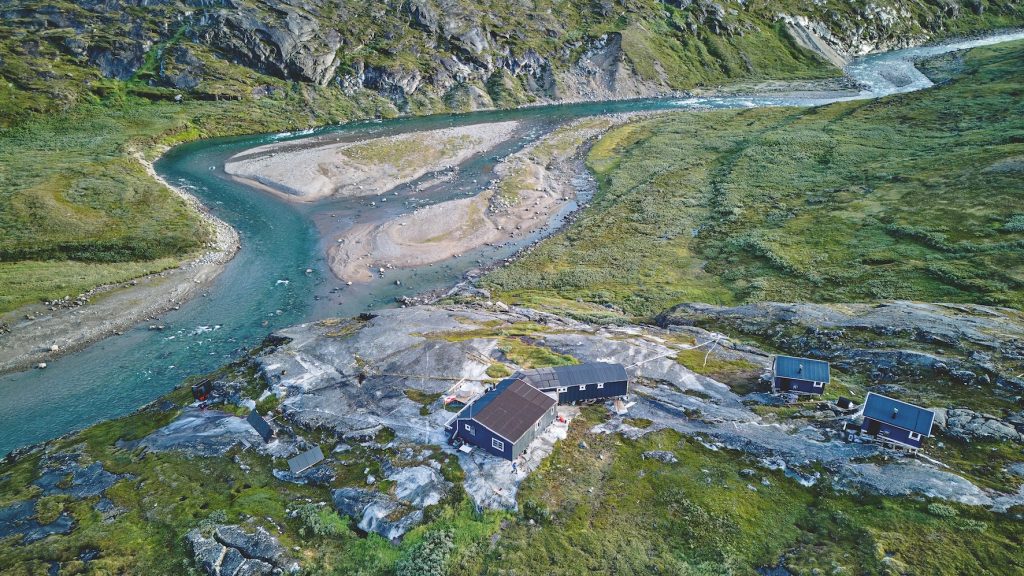A cast in the light
James Percy recounts his most memorable boyhood fishing adventures.
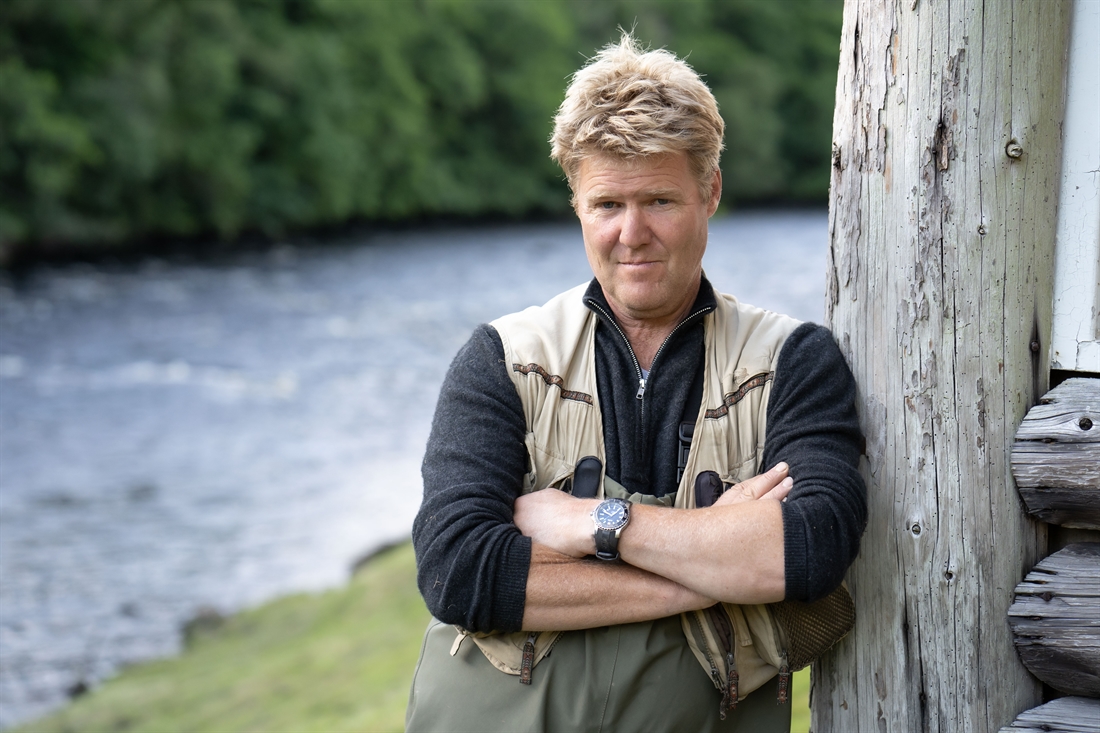
Or more often in my case, when it comes to fishing, a shot in the dark. Fishing for salmon, sea trout, brown trout, cod, mackerel, pike, bonefish on occasion has been as much part of my life as wearing clothes, or the weather, habitually and seasonally becoming a pastime, even obsession that one does at every spare moment, at the right time of year. Fishing can take you from the pond at the end of your garden to oceans, rivers and lakes in the far corners of the earth. In my mind’s eye I have the design for my perfect lebensraum. It consists of a warm quiet room, long but well proportioned, and a little apart from the home action. It has a wide, well-lit desk, cabinet for guns and cartridges clearly, but spacious cupboards for rods, drawers for reels, cast, lines, flies, studs, knives, and general kit. Efficient hanging space for outdoor wear, waders etc and a long big solid table in the middle under which the dogs might lie. A wide door leads straight into a shed, and the shed has all the kit from pigeon hides to chain saws and strimmers, with a rack for rods ready for action. It has a workbench, another large rough table, neatly arranged tools, a marble prepping slab and basin and some hanging space for game and pigeons at the far end. Out into the yard you would look over the stone wall at rolling hills, tumbling streams, woods and fields, hedgerows and thickets, and…..a river. It wouldn’t need to be a big posh one, quite the opposite, somewhere that a little trout rod will suffice, and where there is the chance of a breakfast trout, or a run of bright silver sea trout in mid summer.
My childhood memories of fishing are very strong. I remember a lake at Syon Park near London where I used to set up daily camp aged six or seven. It was full of roach and rudd, carp and all sorts of coarse fish and the outflow ran into the River Thames. Armed with a bag of dough for bait, a bamboo, the hook from a disintegrated Greenwell’s glory and a length of nylon lifted from my Dad’s trout fishing bag I would spend hours catching roach. One day I was in the process of easing another wretched little fish from the water when, no further than the end of the bamboo cane the murky water exploded in front of my very eyes and a huge pike took the roach. There was a brief and violent tussle, which the pike won, I fell in and was left, on my bum, in the water lillies, soaked, sans rod and in a state of shock. It was about the time when the film Jaws came out and, convinced the monster from the depths was going to return for me I fled, screaming, back to Nanny and didn’t venture near the place for quite some time! The same lake when I did eventually pluck up courage to revisit, yielded a huge eel. I knocked it on the head and deposited it in my mother’s flower room sink, so that we could eat it. Later that day we heard a terrible scream downstairs. The beast had recovered and was exiting the sink when my mother walked in with some cut roses. The gardener cut the poor thing’s head off and took it to his mate who had a fish shop. He gave me £5, in 1975, which was quite some prize.
Dropping minnow for trout: For some reason this discipline holds a hugely nostalgic place for me. Perhaps because of the whole scene and paraphernalia before one actually deployed the minnow itself. First, catch your minnow. Either a Champagne bottle with the bottom knocked through and some bread, secured to a tree root in the river near a shoal of minnows, or, Uncle Richard’s net that he used to capture and study Lamprey eels, for he was the world’s leading professor of these creatures. My cousin and I would ambush a shoal of minnows in the shallows and bottle up a couple of dozen. They would then be put in a bucket full of salt for several days until they hardened off. Only then was it time to go fishing. Ideally a blazing hot day in mid June was the best time to go. And we would head for places you couldn’t possibly fish with a fly, or even a spinner. Still, deep, dark water under a thick canopy of overhanging branches and leaves. As stealthily as possible one of us would climb along a bough, lie prone and dangle the minnow. It was presented head down, weighted by threading a needle with hook and a small lead weight in its mouth, just under the surface. By dropping the rod tip a foot the lure would spiral down, then up, down and up, a long loop of slack held in your left hand while your thighs gripped the bough. After perhaps a minute, little brownies would circle fast, sometimes hitting the minnow, each one bolder as competition grew. It was vital not to hook the tottie ones, some barely bigger than the minnow itself, because the local big fellow would soon be drawn by the interest. There was a heart stopping moment when all of a sudden the small trout would scarper and at the very edge of your vision you might see the golden flank of a sizeable trout. He might make several passes, cautious, suspicious, the slightest movement from above would send him back to his lair. At last he would straighten up and attack, grabbing the minnow sideways and would swim off with it into the dark. He mustn’t feel any resistance from the line and as your loop of slack was used up you would feed more and more line. When the line stopped you gave it a few more seconds and set the hook with a firm strike. This was the moment of truth for the monster would streak for a boulder or tree root, or somersault out of the water and you had to cling to the bough with no hands, maintain tension, avoid tangling the rod tip or line in the branches and bring your prize to hand all without falling off the tree. It was by no means a guarantee of success. Sometimes the fish weren’t interested, the light a little wrong, or the big one just wasn’t around that day. You might strike a little early, or the hook and lead would return with no minnow but when it worked it was incredibly exciting. On the River Aln the brownies rarely reached more than a quarter of a pound, a half pounder a real prize on the fly but with the drop minnow a trout of 2lb, once even 3lb was possible. They were cannibal trout these big ones, reaching their great size through eating salmon parr and small trout, but were delicious to eat cooked in milk and oatmeal, or smoked in the Abu.
Catching wild brown trout in a small burn after a summer spate is equally entertaining, a snipe and purple spider fly, a bloody butcher or maybe just trotting a worm under the banks. The Tweed holds amazing wild trout and those who fish for them have proper fishing knowledge, far greater than the standard salmon fisher. Once I was fishing for salmon, unsuccessfully, at Birgham Dub, when I came across Ronnie Glass, a great Borders expert. His sport was catching brown trout, dismissing the silver sea trout and salmon as little more than inconvenience when hooked by mistake. We got chatting and I asked him about Czech nymphing, a method of casting a weighted nymph just upstream no more than a rod length into the streamy waters. His face lit up, and as he drew a deep breath to give me a full seminar he opened his waistcoat. There in full glory were literally hundreds of nymphs attached to a full length of fleece on both inner linings – big, small, beaded, weighted, dark, bright, dangly legs and pheasant tails. The boxes in his multitude of pockets had dry flies of every possible taxonomy – yellow ladies, March browns, rough olives and spent spiders. It gave me a brief window into a discipline requiring such varied skill that I have never mastered, but have always admired.
I don’t think I am a still water enthusiast. While a far away hill loch full of little dark brownies has a romantic draw, notwithstanding the Highland midge, a lake full of stocked rainbows can’t hold my attention for long. I absolutely love a day on a chalkstream, quietly walking up a beautifully tended bank on a warm sunny day, peering over the reeds into gin clear water, spotting fat trout holding station midstream, intercepting surface flies, or tucked under the bank where a seam of water brings hatches of sedge, or emerging nymphs. I have only done dry fly fishing of this type on the River Test in Hampshire but for me there is something wonderfully intimate and feels like a little sliver of old England, unchanged for centuries, away from the motorways and madding crowds – the sometimes soporific heat, the damp and acute river smells, the birdlife and water voles and intense concentration making for a glorious escape. The satisfaction of a gossamer light cast on the nose of a slightly sulky trout, and the holding of breath as his tail sweeps a little faster as he prepares to rise up from the depths and suck in your daddy long legs is magical, even when a fishing friend remarked that my cast, in a strong wind mind, well wide of an aggressive rainbow that torpedoed half way across the river to take my fly was “wildly inaccurate” and likened to “carpet bombing”! The first time my Dad took me to the Test I was maybe 10, and not adept at the skilled upstream cast. However the famous Test river keeper Mick Lunn was asked to take me out for the evening rise. Dinner was in the clubroom of the Houghton water, and I remember being mesmerised by the members; doctors, surgeons, dukes and earls, generals and all, one of whom looked exactly like the huge stuffed trout in the clubroom that had lived below the Stockbridge surgeon’s window in the early 19th century and had grown to over 10lb on tonsils and various amputated appendages. Mick had a kindly manner and after I had made few botched attempts at rising trout he quietly took my fly and put it in his mouth (to make it sink, I learned later). We were standing on a weir, quiet water above, rushing down through the sluices below, and Mick explained that the rules of the club, and dry fly fishing in general, were that you must fish a dry fly on the surface, upstream, only upstream, that the use of a nymph discouraged, and the plop of a beaded nymph highly questionable. This was key info as I was thinking that I could have cleaned the place out with the little spinner that I used at home. Anyway he said that on this occasion, as no one is looking, it might be worth just letting your fly drift down below you into the streamy water. First cast, 3lb brown trout, second cast 4lb rainbow. When we returned to the fish room and the other chaps were there with hardly a fish between them, Mick winked and put his finger to his lips. The chairman of the club gave me a bar of chocolate (he knew full well), I was the proudest boy on the planet and hooked on fishing for life.
I can’t say that I was ever a purist, I used to spend hours trying to rugby tackle running fish in the shallows at home, and my old dog Joe would happily retrieve one shot for the pot on the apron of the dam, though much more law abiding now that everything gets released. Sometimes a salmon, back in the day, was needed for the table, and if they weren’t taking, well, let’s just say that darker tactics could deliver. Old Jock, sadly now passed, was the retired head grouse keeper at Cawdor. He would come and ghillie when I was asked to fish for a day or two on the Findhorn, and tell stories about the great shots and grouse days all day long, same stories, sometimes several times on the same day. I loved my time with him. My hostess required a fish for the house this day and try as I might there was nothing doing. It is possible, though difficult to prove, your honour, that we may have deployed coarse tactics and landed a fine silver fish within minutes. The following year in May Jock and I went down to the river on the first day and as I was weighing up whether to use a Silver Stoat or General Practitioner in proper fashion, before I had even made my first cast of the week, Jock nudged me and said: “Hae ye no got that wee bittie lead in yer baggie, ken?” My uncle Geoffrey was a wrongun, had a nightclub in London once, and he only had lead and trebles in his bag! Nothing else, in fact the trebles had lead melted onto them!
I have been to Russia to fish on the Kola peninsula to fish a few times, and loved every second that I have spent there. From the pilot filling up the old chopper with av gas while smoking, to the fantastic fishing, no mobile phone for a week, a day’s drive from the nearest village, full on deep wading and hard days’ fishing to the moment when trying to catch a salmon while merry with drink, after dinner, that the ground started shaking. A short while later a Russian tank appeared on the opposite side, with no gun or turret, just a dozen equally pissed Russians. After a pause, the tank drove straight across the river into camp and we had a party. My old friend Jake Morley was discouraged from fishing one pool on the River Pana in the early days by having a full mag from an AK47 loosed of in his general direction. You never quite know what might happen but it is magic.
I guess if you had to boil it down my true fishing love would be salmon and sea trout. I have been incredibly lucky, twice over, on my only two trips to Norway. Both on the river Alta where we had the record week for many years, four of us sharing two rods and catching over 50 salmon, the average weight of which was 26lb. This was helped because one of my fellow fishermen managed to land a 55lber! The second time was when I caught what I guess will be my biggest salmon ever, as a guest of a Norwegian friend. I had to get myself to Oslo and he would take care of things from there on. A limo arrived at my Travelodge, and I was deposited on the tarmac of Oslo Airport in front of a private jet which was about 50 yards long. I was greeted by a stunning six foot blond lady who said that she was Bjorn’s PA but “ I also fly the plane” she said. How cool. In Alta, Bjorn was greeted as a returning hero, and we boated up river through massive rapids, round boulders as big as a house, under thousand foot high cliffs with cascading waterfalls, past Mikheleva and on up to Sautso. At the impassable Stein Foss rapids we clambered upstream, made a wish to the lady for the river with a dram and the whole thing was like a fairytale. I would love to go to Tierra del Fuego for big sea trout, and Iceland, and Canada or Alaska, and the Kamchatkan Peninsula, New Zealand and other exotic venues, but give me a Highland stream in Sutherland or Caithness, fining down from a summer spate, and a 9’ rod, using, having recently been introduced to it, the little riffled hitch, or a baby sunray and my cup is full. Or casting a longer line and letting it sweep across the Spey, the Tweed, and of course beloved home waters of the North Tyne. At the end of the day, aside from the excitement and anticipation of a destination fishing holiday, whether Scotland or abroad, I guess when my mind turns to the rod and line I am just gloriously happy going for a June evening cast a few miles away, for a sea trout on the little river Till, or the lower reaches of the Tweed, meeting a pal on the riverbank, maybe a beer, a bit crack about the fish, the farm, the weather, the prospects for grouse, what’s going down in our little lives and finally, when the moment is right, putting out a line, hoping beyond hope for that electrifying take, the blistering run, tail walking, cart wheeling aerobatics of a fresh run sea trout.
Related Articles
Get the latest news delivered direct to your door
Subscribe to Fieldsports Journal
Elevate your experience in the field with a subscription to Fieldsports Journal, the premium publication for passionate country sports enthusiasts. This bi-monthly journal delivers unparalleled coverage of game shooting, fishing and big game across the UK and beyond.
Each issue offers a stunning collection of in-depth features, expert opinions and world-class photography, all presented in a timeless yet contemporary design.
Save 10% on shop price when you subscribe, with a choice of packages that work for you. Choose from Print & Digital or Digital only with each journal delivered directly to your door or via the app every other month, plus access to past issues with the digital back issue library.
